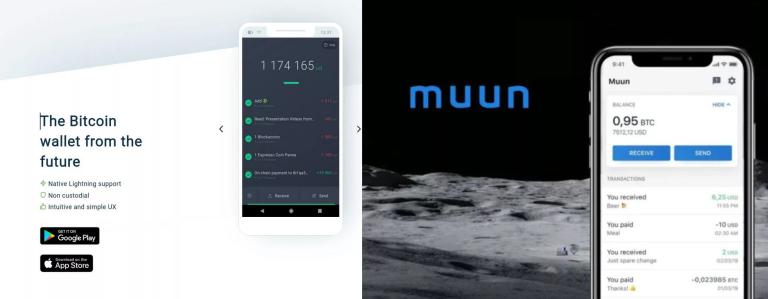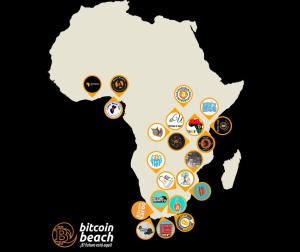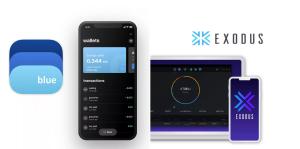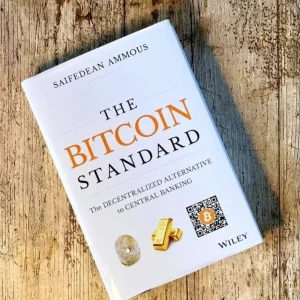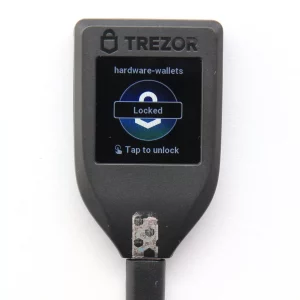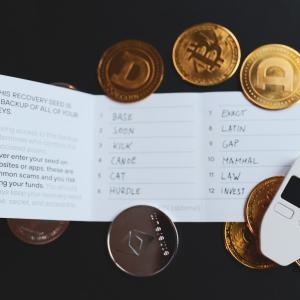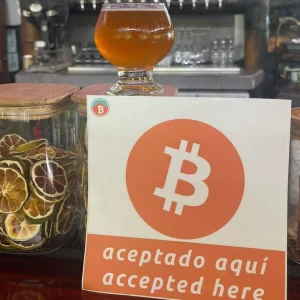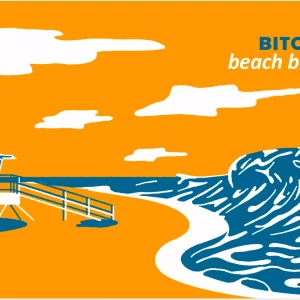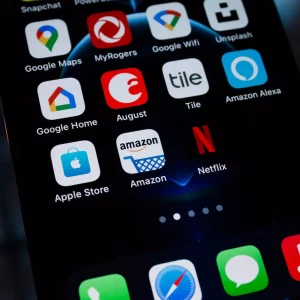When it comes to managing your Bitcoin transactions, the choice of wallet plays a crucial role in ensuring security, ease of use, and access to advanced features. In this article, we’ll look into the distinctions between two prominent contenders in the Bitcoin wallet arena: Muun and Phoenix. Muun was founded in 2018 in Argentine. Phoenix was lunched in 2019 by ACINQ, a Bitcoin development company in France.
Muun
Muun positions itself as an open-source, noncustodial Bitcoin wallet designed with a focus on user experience. This Bitcoin-only wallet boasts a minimalist design, making it an attractive option for beginners seeking simplicity. It abstracts away complexities of channel management. Available on both Android and iOS platforms, Muun offers streamlined functionalities for sending and receiving Bitcoin. With Lightning Network integration, users can enjoy faster and cheaper transactions, appealing particularly to those prioritizing efficiency in their Bitcoin dealings. However, Muun’s simplicity comes at the expense of advanced features, potentially leaving experienced users wanting more.
Find out more: Muun Wallet Review
Phoenix
Action Required: Phoenix wallet will be unavailable on US app stores starting May 3rd, 2024. To avoid losing your funds, please withdraw them from your wallet before this date. Here’s how to withdraw your funds: Android: Go to Settings > Close Channels. iOS: Go to Settings > Drain Wallet. Avoid “force-closing” channels, as this can result in high fees.
Phoenix, also an open-source and noncustodial wallet, is built atop the Lightning Network to facilitate instant and low-cost Bitcoin transactions. Available for Android and iOS, it is primarily intended for Lightning Network transactions. Phoenix operates as a Lightning node on your mobile device. While its focus lies on Lightning transactions, Phoenix also allows on-chain transactions through its “swaps” feature, maintaining low transaction fees and offering a seamless experience for Lightning Network enthusiasts. Although it is simple and user-friendly, but requires some understanding of channel management for optimal use.
Muun supports a wider range of fiat currencies for balance display, over 50. Phoenix allows users to choose balance in 24 fiat currencies, including major ones like EUR, USD, AUD, GBP, and INR.
Phoenix is available in English, Spanish, French, German, Arabic, Czech, Vietnamese, Slovak, Italian, and Japanese. In contrast, the Muun wallet is limited to English and Spanish.
Find out more: Phoenix Wallet Review
Lightning Network Integration
Both Muun and Phoenix support the Lightning Network to provide faster and cheaper transactions. While Muun facilitates Lightning payments, it doesn’t fit the strict definition of a Lightning wallet. Muun uses submarine swaps, a method that converts on-chain Bitcoin to Lightning instantly but incurs on-chain transaction fees.
Phoenix Lightning feature is designed for pure Lightning Network transactions with lower fees. However, Phoenix wallet does not allow manual opening, closing, or management of Lightning channels, nor does it permit users to connect to a Lightning node of their choice.
Phoenix Wallet Fees vs Muun Wallet Fees
Both Muun and Phoenix address fee management in unique ways. Muun employs a mempool-based estimator for suggesting appropriate fees, offering you the flexibility in choosing confirmation durations. Sending fees might be higher due to submarine swaps.
On the other hand, Phoenix has introduced Fees Splicing technology and a revamped fee structure, providing you with better control and transparency over Lightning Network transaction fees. For instance, sending via Lightning incurs a fee of 0.4% + 4 sats, while sending on-chain requires user-chosen mining fees. Receiving via Lightning is free unless there’s insufficient liquidity, in which case a 1% fee plus mining fees applies. Requesting additional liquidity also carries a 1% fee plus mining fees, and receiving on-chain transactions requires standard mining fees. Additionally, channel creation in Phoenix costs 1000 sats, offering a clear and structured fee approach that appeals to users valuing both flexibility and transparency.
Muun Wallet vs Phoenix Wallet: Security
Both Muun and Phoenix prioritize user protection. Both wallets are open source and noncustodial, meaning you hold the private keys to your Bitcoin and their code can be audited. Muun offers multi-signature security with a 2-of-2 multisig setup, requiring two keys for spending. It employs a 2-of-2 multi-signature system for added security, although its non-standard backup method may raise concerns regarding convenience and accessibility. Conversely, Phoenix offers a robust security framework with regular updates and community scrutiny, ensuring user funds remain secure and accessible. Additionally, Phoenix includes a screen lock feature to prevent unintended use of your wallet with your phone’s screen lock or fingerprint, adding an extra layer of protection against unauthorized access.
Advanced Features
In terms of advanced features, Muun supports Taproot and SegWit, enhancing transaction privacy and network capacity. Integration with hardware wallets like Trezor further bolsters security. On the other hand, Phoenix is an LNURL wallet, enabling smoother and more efficient Lightning transactions and interactions. It also supports Taproot, Tor, and wallet integration with Electrum. However, both wallets lack support for features like CoinJoin, PayJoin, and Replace by Fee (RBF).
Muun Wallet vs Phoenix Wallet: Summary
The table below summarizes the key differences between Muun and Phoenix wallet to help you decide which one is right for you.
| Feature | Muun Wallet | Phoenix Wallet |
|---|---|---|
| Launch Year | 2018 (Argentina) | 2019 (France) |
| Open Source, Non-custodial | Yes | Yes |
| Target Audience | User experience, simplicity (Beginners) | Lightning Network transactions |
| Platform | Android, iOS | Android, iOS |
| Fiat Currency Support | Over 50 | 24 (Including major currencies) |
| Languages | English, Spanish | English, Spanish, French, German, Arabic, Czech, Vietnamese, Slovak, Italian, Japanese |
| Lightning Network Integration | Yes (Submarine Swaps) | Yes (Native Lightning Wallet) |
| Manual Channel Management | No | No |
| Fee Management | Mempool-based estimator, No RBF, No Coin Control | Fees Splicing Technology, Sending via Lightning: 0.4% of the amount sent, Receiving on-chain: mining fees + 1000 sat one time, No RBF, No Coin Control |
| Security | Multi-Signature (2-of-2), Non-custodial, Open Source | Non-custodial, Regular Updates, Screen Lock, Open Source |
| Advanced Features | Taproot, SegWit, Hardware Wallet Integration | LNURL, Taproot, Tor, Electrum Integration |
| Unsupported Advanced Features | Coin Control, xPub, RBF, Multisig, Tor, CoinJoin, PayJoin | Coin Control, xPub, RBF, Multisig, Tor, CoinJoin, PayJoin |
Which Wallet is Right for You?
Action Required: Phoenix wallet will be unavailable on US app stores starting May 3rd, 2024. To avoid losing your funds, please withdraw them from your wallet before this date. Here’s how to withdraw your funds: Android: Go to Settings > Close Channels. iOS: Go to Settings > Drain Wallet. Avoid “force-closing” channels, as this can result in high fees.
So, which wallet should you choose? It really boils down to your priorities. Muun shines with its user-friendly interface and ability to handle both on-chain and Lightning transactions with ease. This makes it a great option for beginners or those who value simplicity. Phoenix, on the other hand, caters more to the tech-savvy Bitcoin user. Its focus on the Lightning Network and ability to connect to Tor offers enhanced anonymity.
For open-source enthusiasts, the good news is that both wallets are open-source. If hardware wallet integration is key, Muun connects with Trezor, while Phoenix integrates with Electrum software wallets. A point of consideration for some might be the potential for submarine swaps congesting the blockchain when using Muun wallet. While Muun uses submarine swaps for Lightning transactions, Phoenix, as a native Lightning wallet, manages channels seamlessly in the background. This advantage could attract users who are particularly concerned about network fees and network congestion.
Finally, language options might be a deciding factor for some. Muun offers English and Spanish, while Phoenix boasts a wider selection including French, German, Vietnamese, and even Japanese.

